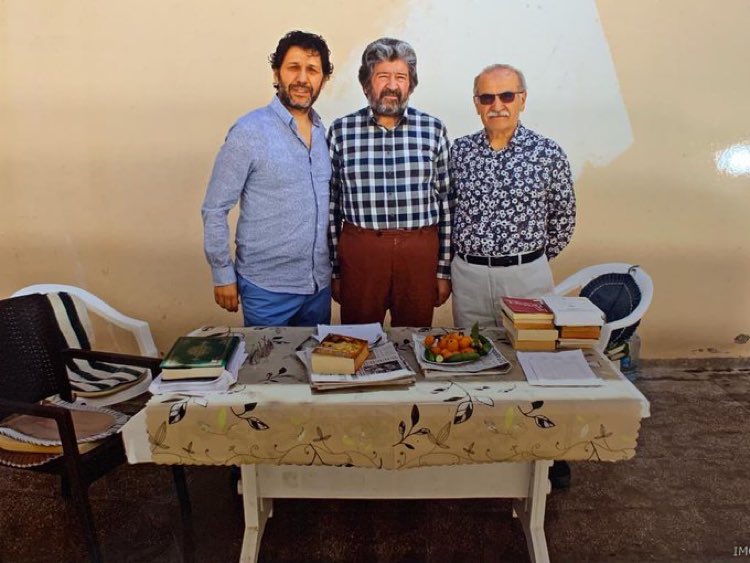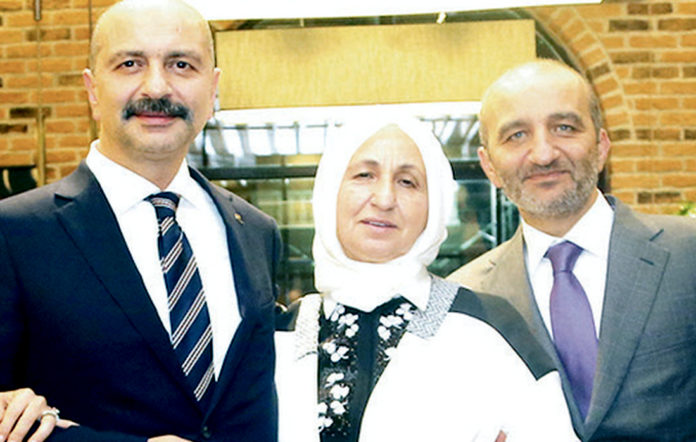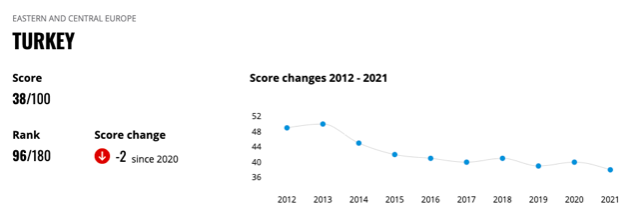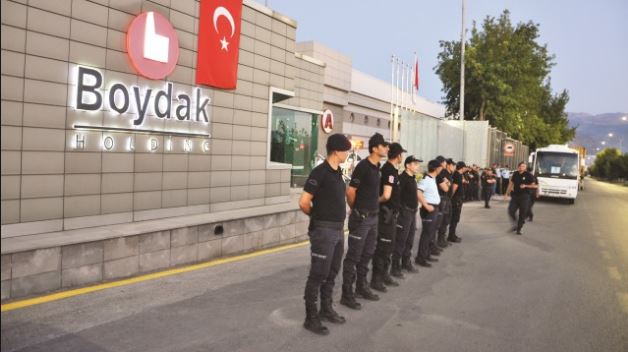Levent Kenez/Stockholm
With a new law that is expected to soon be approved in the Turkish parliament, the government of President Recep Tayyip Erdoğan will grant legal immunity to trustees and executives appointed to companies that were seized by the government and later transferred to the Savings Deposit Insurance Fund (TMSF).
Board members and executives appointed to the seized companies are mostly members of the ruling party, former lawmakers or bureaucrats close to the government. They will be exempt from liability for corruption and misconduct even if cases are concluded in favor of former owners who claim that their companies suffered losses while they were managed by the TMSF.
Amending the current law, which stipulates that appointees who inflict financial damage on companies in their charge face a criminal case and the possibility of paying restitution, the government is now preparing to grant them the status of state officials whose prosecution is dependent on permission from the government. It is not likely that they will be prosecuted even if they violate the law given the fact that the Erdoğan government does not grant such permission. The proposed law will also ensure that appointees remain loyal to the government, preventing them from making disclosures if they are at odds with the authorities.
Moreover, the bill also proposes a change that the state reserves the right to demand compensation from its appointees in cases in which it suffers damage, contrary to the current law. In other words, even if the state suffers losses through the management of these companies, the suspects will not even be able to be investigated because the government may not see the need for it.
Bill submitted to parliament by the ruling party:
In addition, the new law paves the way for the sale of companies seized by the state for “national security reasons,” even if the cases filed by owners are not yet concluded. Under the current law, selling these companies requires a lengthy and complicated legal procedure, but still, some companies were sold despite the objections of their owners.
A total of 1,124 companies, most of which were seized after a controversial coup attempt in 2016 and transferred to the TMSF, were accused of posing a threat to national security. The owners were also charged with affiliation with the Gülen movement, which the government claims was behind the coup attempt, and of financing terrorism. Many of them were arrested while others were forced to flee abroad to avoid ill-treatment and wrongful imprisonment. Some of those who went overseas applied for arbitration before the International Centre for Settlement of Investment Disputes because they met the requirements.

According to a survey conducted by The Arrested Lawyers Initiative based in Brussels, the value of the confiscated companies corresponds to 163 billion Turkish lira (TL), or $11 billion. Economists state that Erdoğan’s government is trying to generate income by selling these companies in the worsening economy, likening it to a strange privatization in which the state sells companies it does not own. Owners also worry that their companies will be sold to businesspeople close to Erdoğan at below-market prices.
Last April the TMSF approved the sale of leading plastics company Aby Plastik, part of Naksan Holding, one of the confiscated giants that employs 7,000 workers and exports to 140 countries, to YAPIEN, which is close to government, for TL 1.2 billion.
Osman Nakiboğlu and Hilmi Nakiboğlu, 52 percent owners of Naksan, who claimed that the market value of Aby Plastik is was least TL 3 billion, applied to the TMSF for the cancellation of the sale but were rejected. The owners argued that the sale price was even lower than the value of the land owned by the company.
Akın İpek, the owner of the seized İpek Holding, announced on Twitter that land owned by his holding, which has $6.5 billion in gold reserves, was sold to a public company called Gübretaş for $3.5 million.

The former owners frequently state that trustees are paid much more than the going market rate and that the trustees hire their relatives. They also claim that a trustee earns extra income because he or she is employed by more than one company. For example, it was revealed that the trustees appointed to İpek Holding, which was seized in 2015, received a monthly salary of around $25,000 per person, excluding bonuses. Following İpek Holding’s objection, the court ruled to increase the salaries to $28,200. The salary of an undersecretary, the highest civil servant according to the law, was $3,230 at the time.
Turkey saw a significant decline in Transparency International’s Corruption Perceptions 2021 Index (CPI), dropping 42 places since 2012 according to data released by the corruption watchdog. The country currently ranks 96th out of 180 countries. Back in 2012, Turkey had ranked 54th in the index together with EU member states Latvia and Czech Republic.

Meanwhile, opposition deputies strongly objected to the bill, which was approved by a parliamentary committee on April 15.
Emine Gülizar Emecan of the main opposition Republican People’s Party (CHP) criticized what she described as a broad legal shield for government-appointed executives, also arguing that it is wrong to leave the collection of damages to the government.
Ruling party deputies and TMSF officials replied that there is an inequality between executives who are already civil servants and those who are not and that this inequality is corrected with the proposed legislation. They argued that while those who are civil servants are granted immunity, it is not fair for those doing the same job to be unprotected because they are not members of the civil service.
However, they did not provide an explanation as to why compensation for damages was left to the decision of the government.
Peoples’ Democratic Party lawmaker Garo Paylan criticized the confiscation of companies for affiliation with the Gülen movement. Paylan, who stated that affiliation is not a legal term, argued that the seizures are unlawful considering that even the courts are not reliable or independent in today’s Turkey. He claimed that deputies of the ruling party may suffer in the same way if the government changes.
Responding to Paylan, ruling party deputies and TMSF officials said the court decision about the owners of the company is still binding in the new law and that the income from the sale of their shares will be kept in a fund and will be paid to them if they are acquitted. They explained that if they are convicted of terrorist crimes, the money would go to the state.
Nordic Monitor previously reported that Turkey is by far the leader in the number of prisoners convicted of terrorism in Europe according to the 2021 Council of Europe Annual Penal Statistics on Prison Populations report, better known as SPACE I, released in April.
The report also shows how easily the Turkish government, which has been criticized by international human rights organizations and the United Nations for the implementation and scope of its anti-terror law, turns its citizens into terrorist convicts.
A total of 30,555 of these people, or 95 percent, are in Turkish prisons. In other words, Turkey hosts almost all prisoners convicted of terrorism in Europe.
Following the controversial coup attempt on July 15, 2016, a witch-hunt launched by the government of President Erdoğan, which declared opponents as terrorists, has yielded the result that a record number of Turkish citizens were investigated and convicted of terrorism.
According to official statistics, terrorism investigations were launched into 2 million people between 2015 and 2020. Given the fact that the Turkish population over the age of 18 is 59 million, one in every 30 people in Turkey has faced trumped-up terrorism charges.
Members of the Gülen movement constitute the overwhelming majority of those who were prosecuted and convicted.
According to data compiled from official statistics on terrorism convictions between 2015 and 2020 by Solidarity with OTHERS, a nongovernmental human rights organization based in Brussels, terrorism investigations were launched into 1,977,699 people by prosecutor’s offices all over Turkey.
A list of firms under TMSF control, most of them seized from owners seen as critical of the Erdoğan government:












